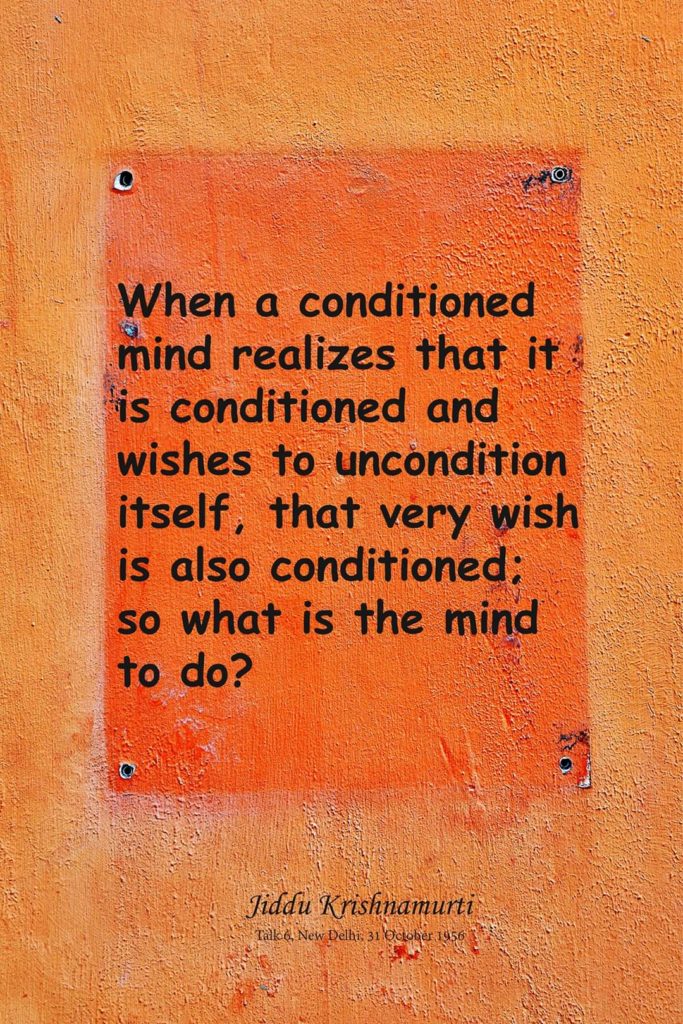I am using the word learn in quite a different sense, not as a process of acquiring knowledge. Living with a thing and acquiring knowledge about it are two different states. To learn about something, you must live with it, and if you already have knowledge about it, you cannot live with it because then you are only living with your own knowledge. To find out for ourselves about the extraordinarily complex problem of time and death, one must learn, and therefore live with it; and this is completely impeded if we approach it with the accumulation of what we already know, with knowledge. I will go into it a little, and perhaps we shall be able to communicate with each other.
We were talking the other day about desire. We went into it fairly sufficiently, but I think we missed something—that desire is intimately connected with will. Will implies, surely, not only desire but also choice. Where there is choice, there is will, and therefore the problem of time arises.
Please, if I may suggest it, listen to the whole thing right to the end. Do not stick at parts of it with which you agree or disagree, but look at the totality of it, the whole content of it. It is a matter of perception, of seeing something directly, and when you see something very directly then you neither agree or disagree—it is so.
So, as I was saying, through conflict, outward and inward, we develop will. And will is a form of resistance, obviously, whether it is the will to achieve or the will to be, the urge to deny or the determination to sustain something. Will is the many threads of desire, and with that we live. And when we inquire into time, we require an insight which is quite different from the will to understand. I do not know if this is clear, but I will go along with it, and perhaps you will see it. This is an informal talk, not a prepared talk; it is more or less an inquiring into oneself, and to go into it publicly is one thing, and to go into it all by oneself is quite another. What we are trying to do is to communicate it to each other—this journey into time. The inquiry implies time also, and the putting of words together implies time, and all communication is based on time. And perhaps there is a comprehension of what is time and what is timelessness, not through words, not through verbal or intellectual communication, but perhaps by sidestepping the whole process. But unfortunately we must first inquire verbally, intellectually, into time. And this inquiry is the sense of learning about it—which is not remembering what you have read, or merely hearing the words I am saying, but the perception of it, seeing it directly for yourself. And I think that may have immense value.
The Collected Works of
J. Krishnamurti -Volume XII 1961
There Is No Thinker, Only Thought
Jiddu Krishnamurti
